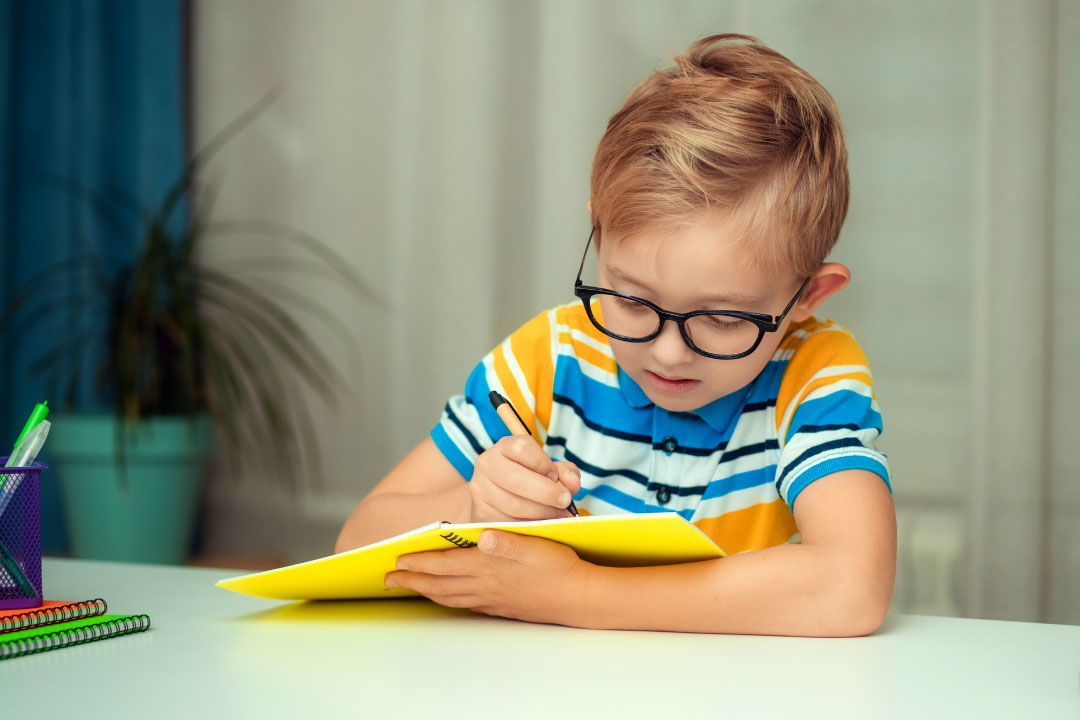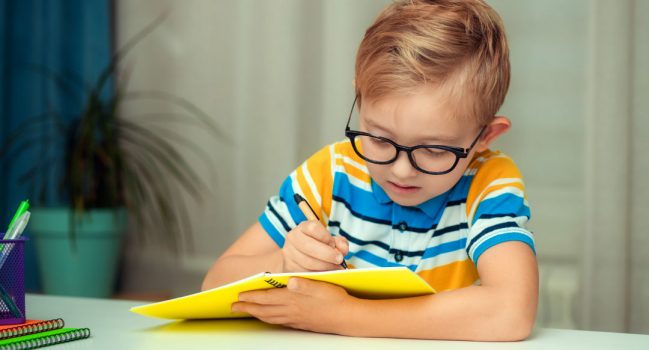
Back to school eye tests
It's that time of year again! If you have a little one starting school for the very first time, it's a great idea to book in for an eye test before they head off for their first day. It's also useful to book regular tests for older kids too, so we can jump on to any issues as soon as they arise, and start to build a life-long picture of eye health.
So even if your child hasn't raised any concerns with their eyesight, come and see us for a check up before they head back to the classroom. Thanks to our head office team for this blog post below.
oGood vision is critical to your child’s development and performance at school.
According to Optometry Australia’s 2020 Vision Index report, almost 80% of Australian parents believe their children have great eyesight, however, alarmingly, nearly 32% of parents have never taken their child to an optometrist for an eye test.
Of the 68% of children who have had their eyes examined by an optometrist, 35% have required prescription glasses.
Optometry Australia is urging parents to take their children to have their eyes tested regularly and certainly at least before they start back to school.
“The first test of the year should be an eye test,” says Luke Arundel, Chief Clinical Officer, Optometry Australia.
One in five children will be going back to school with undetected vision problems which can affect their ability to learn, problems which can easily be picked up by your local optometrist.
Early intervention
Having an eye test at the beginning of the school year is crucial in being able to uncover eye problems early, well before your child mentions that the words in their book look blurry or they cannot see the school board.
An optometrist can test, diagnose, and manage any visual dysfunction that may co-exist with a child’s learning difficulty diagnosis. Vision, either poor sight or poor efficiency in skills, may affect a child’s cognitive ability and interfere with their learning.
Without knowing, your child could be struggling with vision problems which can impact their ability to read, their speed of reading, fluency, concentration, and comprehension well before you know they have a problem. Early intervention by your local optometrist is important in helping them remove this significant obstacle to their learning.
Vision problems such as poor focusing, poor eye teaming, poor eye tracking and uncorrected refractive error (one of the leading causes of amblyopia or lazy eye) can interfere with learning and potentially result in in poor school performance.
Whilst vision problems may not always be the direct cause of learning disorders, they can have an impact on your child’s ability to perform to their potential. Students with learning challenges may require a multidisciplinary approach from a team of people including teaching staff and health care professionals.
Warning signs of child vision problems
How do you know if your child has good or poor vision?
There are some important signs of possible vision problems in your child that parents should look out for, including:
- Difficulty reading, such as skipping and confusing words or using their finger when reading
- Holding a book very close or sitting too close to the television
- Tilting or turning their head to one side when looking at something
- Complaints of headaches and blurred or double vision
- Squinting, or having difficulty recognising things or people in the distance
- Difficulty focusing on a moving object such as a ball being thrown in their direction
- Eyes turning inwards, outwards, or sidewards
It can be hard to tell if your child has good or poor vision especially when they are very young and nonverbal.
It is important to not assume that your child has good distance and near vision. Your optometrist can do age appropriate vision tests for your child so they can diagnose ocular health problems, refractive errors, and/or binocular dysfunctions early.
Screen time
As extended near work on digital devices have been associated with eye strain (sore eyes) and myopia (short-sightedness) a common question asked by parents is how much screen time is appropriate for children.
You can break it down into two simple guidelines:
- Monitor and reduce screen time: it is recommended that school-aged children spend less than two hours per day of leisure screen time
- Spend 11 plus hours per week doing outdoors activities: Balance the child’s activities with lots of outdoor sport such as soccer, cycling, walking, etc
Regular kids eye tests
A comprehensive eye test by an optometrist will assess visual efficiency skills which can have a direct impact on learning and your child’s potential in the classroom.
Kids will often not complain about vision problems because they will feel that that what they are living with is normal. By getting their eyes checked you will be able to discover a problem if one exists well before it becomes a bigger problem.
No child is too young to get their first eye test!
Contact us to book an eye test for your child at the start of the school year. A Medicare rebate is available for all infants and children.
Thank you to Dr SooJin Nam for her direction and input with this article.
Dr SooJin Nam has a special interest in children’s vision, myopia control and learning difficulties, in particular, the impact vision has on learning and concentration. She understands the concerns parents have when told that their child has poor vision. She understands that selecting the first pair of spectacles for your kids can be a daunting experience. Dr Nam and her practices have been the recipient of many business awards over the years.
Ready to book an appointment?
Online bookings available or call us on (07) 3463 0349.
This website does not provide medical advice. It is intended for informational purposes only. It is not a substitute for professional medical advice, diagnosis or treatment. Never ignore professional medical advice in seeking treatment. If you think you may have a medical emergency, immediately dial Triple 0 (000).

